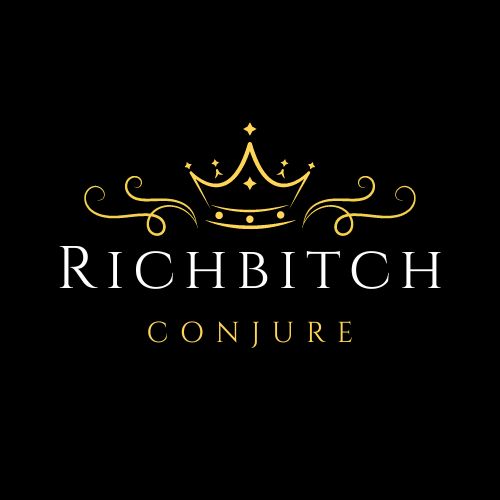Introduction: Reclaiming Our Ancestors’ Magic
Hoodoo is more than candles, roots, and whispered Psalms. It is the survival technology that helped enslaved Africans shield their minds, bodies, and spirits under brutal oppression. Today Hoodoo continues to uplift Black descendants, yet its popularity on social media has spawned confusion and cultural appropriation. This guide offers a factual, respectful overview that honors the people who created Hoodoo and clarifies who may rightfully practice it.
Key SEO Keywords: hoodoo origin, is hoodoo a closed practice, African American folk magic, rootwork vs voodoo, High John the Conqueror, conjure practices, Black spirituality
1. Where Does Hoodoo Come From?
Enslaved Africans forcibly brought to North America carried a mosaic of spiritual systems—Ifá, Kongo cosmology, Akan ancestor reverence, BaKongo minkisi medicine, and more. Stripped of language and land, they shielded these traditions with plant knowledge from Indigenous Americans and a veneer of Christian iconography to survive. Because the Bible was the only book legally permitted to them, it became both a masking tool and a spell book…think Psalm 91 for protection or Psalm 109 for reversal work.
Survival in Plain Sight
-
Plant allies like tobacco, cedar, and mullein mirrored African botanicals.
-
Christian saints and Psalms shielded forbidden African practices under acceptable “church” language.
-
Everyday objects (railroad spikes, red brick dust, horseshoes) became potent charms re-tooled with African cosmology.
2. Hoodoo Is Not a Religion
Unlike Vodou (Haiti) or Candomblé (Brazil), Hoodoo has no pantheon, priesthood, or fixed liturgy. It is practical folk magic: its focus is results, not worship. Rootworkers might petition the Christian God, ancestral spirits, or nature forces, but the goal remains tangible change—money in the pocket, a court case dismissed, a lover protected.
3. Rootworkers, Conjure Doctors, and Community Healers
From the swamps of Louisiana to the Sea Islands of South Carolina, rootworkers served as doctors, therapists, and spiritual advisors when white society denied Black communities medical care or justice.
|
Era |
Notable Figures |
Contributions |
|
Early 20th c. |
Zora Neale Hurston (anthropologist & novelist) |
Documented Hoodoo rituals in Mules and Men |
|
Contemporary |
Countless modern practitioners like Mama Rue or Papa Gee (Black lineages) |
Teach ethical conjure that centers ancestral permission |
These healers traded wisdom through oral tradition, ensuring Hoodoo’s heartbeat never ceased.
4. Christian Imagery, A Tool of Camouflage, Not Colonization
Slaveholders forced Christianity upon the enslaved, yet Hoodoo practitioners re-coded biblical verses into spellwork. The 23rd Psalm became a road-opening chant, the Book of Psalms a complete grimoire. Lighting candles to saints such as St. Martha or St. Michael masked the invocation of African warrior spirits. This syncretism was an act of preservation, never assimilation.
5. The Power of High John the Conqueror (and Why It Bites Back)
High John the Conqueror root (Ipomoea jalapa) symbolizes unbreakable Black resilience. Legend paints John as an enslaved African prince who outwitted every oppressor. Rootworkers carry the dried root for luck, power, and court victories.
Why Appropriators Struggle
-
Ancestral Kinship: High John responds to the bloodline that birthed him. Petitioning without a shared lineage can nullify the work or reverse it.
-
Spirit of Resistance: The root’s spirit resists those aligned with systemic oppression. Attempting to commodify High John without cultural ties may manifest as bad luck, financial loss, or spiritual backlash.
6. Is Hoodoo a Closed Practice?
Short answer: Yes. Hoodoo belongs to the descendants of enslaved Africans in the United States whose ancestors created it as a survival art. While anyone can study history, hands-on practice requires ancestral permission and a lived Black experience.
Key Points
-
Lineage Over Interest
Curiosity or “vibes” cannot replace heritage. An African American whose grandma fixed pokeweed salve has inherited the right, yet someone without that lineage does not.
-
Guarding Community Medicine
Hoodoo formulas like banishing powders or baby-blessing rituals are community property, not global open-source data.
-
Respectful Allies
Non-Black supporters can uplift Hoodoo by citing Black scholars, buying from Black conjurers, and opposing cultural theft while keeping hands off ritual practice.
7. The Dangers of Cultural Appropriation
-
Spiritual Blowback: Misusing spirits rooted in African resistance can invite chaos.
-
Historical Erasure: Diluting Hoodoo into generic “witchcraft” erases centuries of Black ingenuity.
-
Economic Exploitation: White-owned shops selling watered-down “Hoodoo oils” siphon income from living Black practitioners.
8. Modern Hoodoo: Thriving, Adapting, Resisting
Despite social media’s trendification, authentic Hoodoo circles continue to vet newcomers, archive oral history, and innovate, blending old roots with new challenges like digital hexing or systemic racism. Rich Bitch Conjure stands on this tradition, offering conjure oils crafted by a Black rootworker initiated through family lines, not internet trends.
9. Frequently Asked Questions
Q: What is the difference between Hoodoo and Voodoo?
A: Hoodoo is folk magic, while Voodoo (Vodou) is a West African diasporic religion with LWAs and formal initiations.
Q: How do I honor Hoodoo culture respectfully?
A: Credit Black scholars, support Black conjure businesses and learn your own ancestral folk ways instead of adopting ours.
10. Conclusion: Protecting the Fire We Inherited
Hoodoo is the unsung anthem of Black perseverance. It brewed in cotton fields, danced in praise houses, and marched alongside civil-rights leaders. To honor it, we must guard its medicine, credit its makers, and reject appropriation. Whether you carry High John in your mojo bag or simply admire from afar, remember: Hoodoo is a living ancestor-treat it with the reverence it deserves.
Suggested Call to Action
Ready to deepen your ancestral practice? Explore Rich Bitch Conjure’s authentic conjure oils and ritual tools created by a lineage-rooted practitioner dedicated to preserving Black folk-magic traditions.

